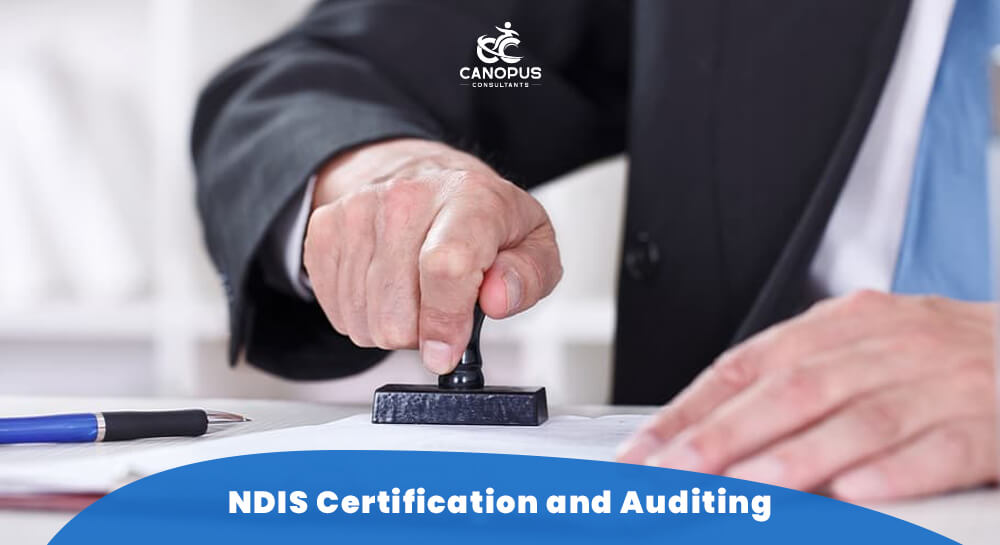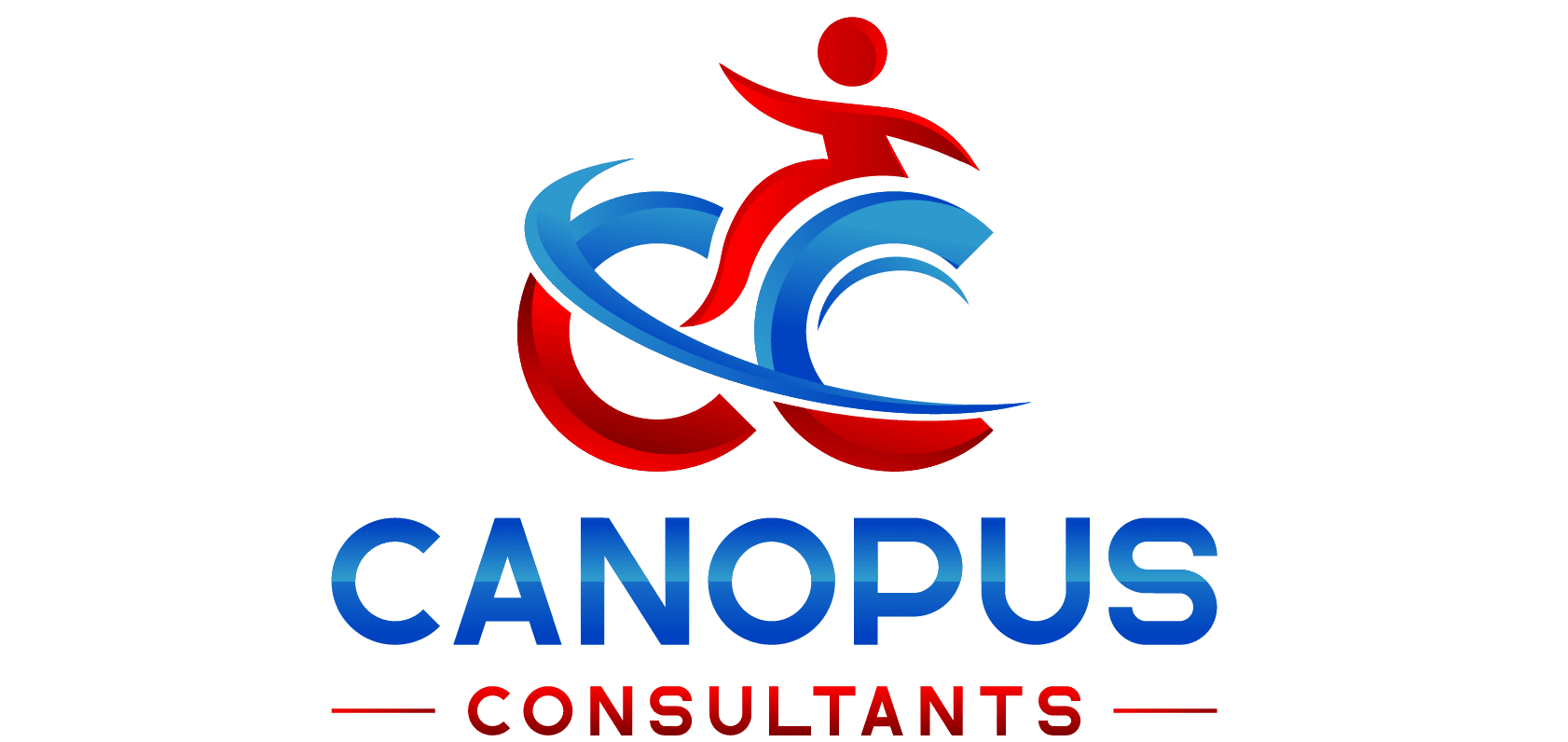
NDIS Certification and Auditing
NDIS Certification and Auditing Melbourne, Australia
The National Disability Insurance Scheme (NDIS) is a large-scale social program that provides support to people with disabilities in Australia. As part of its rollout, the NDIS has introduced a certification and auditing process for service providers who want to participate in the scheme.
The purpose of this document is to provide an overview of what certification and auditing are, how they work within the NDIS, and what you can do if you’re interested in becoming certified or audited as an NDIS service provider.
What is NDIS Certification?
Certification is a process in which a third-party assessor reviews your NDIS provider’s information and documentation, as well as its service delivery processes, to ensure they meet all requirements.
Certification is required if you want to bill the NDIS for services provided under the scheme. It can also help improve your service quality and efficiency by providing an external perspective on how well your organization meets its obligations under the scheme rules.
NDIS certification is a process that helps you to gain confidence in your knowledge and skills, as well as an understanding of the NDIS. It also helps you to develop effective strategies for improving your practice.
- For an NDIS provider to be eligible for funding, they must have been certified by an approved accreditation body (AAB). AABs are independent third parties who assess whether organizations meet the requirements set out by the Department of Social Services (DSS) under the National Disability Insurance Scheme (NDIS).
Certification Process
The certification process involves several steps. It starts with an application, which must include:
- A description of your service
- Your organisation’s structure, including information on directors and managers
- A copy of your NDIS plan (if you have one)
You will also need to provide evidence that you are a registered not-for-profit organization. This should include:
- A copy of your Certificate of Incorporation
- Any other documents showing that you’re a not-for-profit organization, such as an ABN or Australian Business Number
What is Auditing?
Auditing is the process of examining the NDIS service provider’s records to determine whether the services are being provided by approved plans and arrangements.
Audit findings should be reported promptly to NDIA and may lead to:
- Corrective action by you or your organization; or
- Suspension or cancellation of your funding under the program
Auditing is the process of verifying that a service provider’s policies and procedures are in place and being implemented effectively. Auditors may conduct unannounced audits, or they may follow up on complaints received by consumers or other stakeholders. To be certified as an NDIS-compliant service provider, you must have undergone at least one annual audit conducted by an external auditor who has been approved by the NDIS Quality Assurance Framework (QAF).
Auditing Process
Auditing is the process of verifying that an organization or individual has met the requirements of a standard. The NDIS CAC has developed an audit program for NDIS providers who wish to be certified as meeting the NDIS CAC’s standards for quality management in delivering services under the National Disability Insurance Scheme (NDIS).
The purpose of this document is to provide information on how auditing works, including:
- Audit process and timelines
- Audit checklist for providers
Significance of NDIS Certification and Auditing
NDIS certification and auditing is an important standard for people with disabilities. It ensures that you get the best possible service from your provider, as well as peace of mind that you’re getting value for your money.
The NDIS is an Australian Government initiative which aims to make it easier for people with disabilities or chronic illnesses to get support from the community, including supports like personal carers and home modifications which can make a huge difference in quality of life. The NDIS has been rolled out across Australia since July 2016, but there are still many areas where it hasn’t reached yet – so if you live in one of those places then this guide isn’t relevant to you right now!
Expertise in NDIS Auditing Matters
When it comes to certification, there are several advantages to hiring an experienced firm. The first is that they have already gone through the process themselves, so they know what you’re going through and can help you navigate it more easily. They’ll also be able to provide insight into what your organization needs to do before beginning the application process, which will save time later on down the line when applications need to be submitted or audits are conducted by NDIA auditors.
What to Look for in NDIS Certification and Auditing Firms
If you’re looking for an NDIS certification or auditing firm, there are a few things that should be on your checklist. You’ll want to make sure they have the right expertise and experience with your industry. For example, if you’re in healthcare and need an audit of your facility’s compliance with HIPAA regulations, then it makes sense that you would choose an audit company that specializes in this area of law rather than one that does general accounting audits.
Additionally, make sure the person(s) working on your project understand how the NDIS works from both perspectives–the state level as well as at home base (your organization). This will help ensure that all bases are covered when determining what needs improvement within each category evaluated during the process: planning; operations; administration/management/controls; financial condition; internal control over information technology systems security controls related.
A Custom Approach to NDIS Compliance, Certification and Auditing
If you’re looking to get certified or audited, we can help. Our process is custom-tailored to your needs and budget, ensuring that you get the most out of your NDIS investment.
- We’ll begin by discussing what certification or auditing means for your organization.
- Then we will review relevant policies and procedures to ensure they are in line with best practices for NDIS compliance.
- Finally, we will conduct an onsite audit of all employees involved with NDIS services (e.g., service coordinators) as well as other key stakeholders such as business owners/managers and staff members responsible for billing clients.*
Is It Necessary For All Service Providers To Be Certified?
Certification is not a requirement of the NDIS, but it is highly recommended. Certification helps service providers demonstrate that they are compliant with the NDIS Standards and Rules, which means they can provide better services for people with disabilities.
To become certified, your organisation will need to:
- Meet all relevant legislative requirements in your state or territory
- Comply with all NDIS Standards and Rules requirements
- Complete an internal audit of your organisation’s policies and procedures
- Submit an application form along with supporting evidence such as proof of insurance coverage or membership in industry associations
What are the Requirements for NDIS Certification?
The requirements for NDIS certification are as follows:
- You must be a registered provider of services to people with disabilities.
- You must have an appropriate amount of staff with relevant qualifications and experience in your organisation who can provide support to people with disabilities.
- Your organisation must have a sound governance structure in place, including policies and procedures relating to financial management, risk management and human resources issues such as recruitment, induction training and performance management processes (you will need these documents on file).
How do I become NDIS Certified?
There are several ways to become NDIS certified.
- The first is by undergoing an audit from a third-party auditor, who will review your policies and procedures to ensure that they meet the NDIS requirements.
- The second is by completing an online course on the National Disability Insurance Scheme (NDIS). This course will provide you with all the information that you need to know about becoming an NDIS provider and assist in preparing for certification testing.
- You can also choose to attend one of our training courses or seminars where we offer hands-on experience in setting up an NDIS plan and working with clients who have disabilities
Frequency of Audits: Every Two Years
The NDIS Quality and Safeguards Standards (QSS) Act requires an audit to be carried out on your service at least every 2 years.
To meet this requirement, you will need to apply for certification as part of the NDIS Certification process. Certification is a process that gives you a formal stamp of approval that your service meets the required standards.
Overview of the NDIS Certification Process
The NDIS certification process involves a thorough audit of your service and its compliance with the QSS Act, as well as its ability to meet the needs of people with disabilities. An external auditor will conduct this process in conjunction with you and other relevant parties.
The NDIS Certification Scheme (NCS) requires that all new providers are audited by an independent third party before they can be accredited by the NDSC or continue to provide services under their existing accreditation arrangements.
This may include an assessment of your organisation’s ability to deliver appropriate support for people with disabilities who have complex needs; whether you have systems in place for quality and accountability; how well-trained staff members are; whether they have adequate resources available for delivery of support services etcetera
Focus on Safety, Quality, and Service Standards
The NDIS Quality & Safeguards Commission (QSC) is responsible for the certification of service providers under the National Disability Insurance Scheme (NDIS).
The QSC has published a new version of its Quality and Safeguards Protocol (Q&SP). This document sets out how providers can meet the safety, quality and service standards required to be certified by the NDIS Quality & Safeguards Commission.
Requirements for Certification
The NDIS Practice Standards are a set of guiding principles for service providers and their staff. They set out what is expected in terms of how services should be delivered, and include standards for quality assurance, operational practices and financial management.
They also provide information about the roles of the National Disability Insurance Agency (NDIA) and its accredited auditors about certification.
Maintaining High Standards in NDIS Services
The NDIS Commission will refer any suspected non-compliance to the relevant state or territory regulatory authority. The NDIS Quality & Safeguards Commission is responsible for certifying and regulating NDIS service providers. The commission will refer any suspected non-compliance to the relevant state or territory regulatory authority.
Conclusion – NDIS Certification and Auditing
The NDIS Commission is responsible for certifying and regulating NDIS service providers. The NDIS Quality & Safeguards Standards require that all providers be certified by an external auditor before they can receive payments from the NDIS.
- September 24, 2023
- By: hello@cre8tivebot.com.au
- Categories: Blog
- no comments
- Tags: NDIS Auditing, NDIS Certification, NDIS Certification and Auditing


